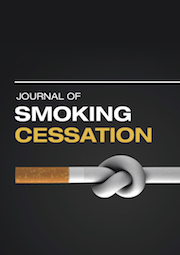Article contents
Smoking Cessation Among Persons With Co-Occurring Substance Use Disorder and Mental Illness
Published online by Cambridge University Press: 21 February 2012
Abstract
Aims: A history of either a substance use disorder (SUD) or psychiatric disorder (PD) is associated with tobacco use. However, there is limited information available on tobacco dependence treatment outcomes among individuals with co-occurring SUD and PD. Methods: Data from 202 participants enrolled in a tobacco dependence treatment program in an outpatient clinic setting were analysed. Findings: In multivariate analysis, having a history of SUD only (OR =.11, 95% CI = .02–.76) and having a co-occurring SUD and PD (OR = .13, 95% CI = .02–.81), as compared to having neither, were significant predictors of a lower likelihood of achieving smoking abstinence. Conclusions: A history of SUD and PD is an important predictor of poor smoking cessation outcomes; however, using more intensive, tailored approaches to tobacco dependence treatment appears to be promising. Future studies may need to further address the nature of tobacco dependence treatment in settings were PDs and other SUDs are managed in order to achieve optimal outcomes.
Keywords
- Type
- Articles
- Information
- Copyright
- Copyright © Cambridge University Press 2011
- 3
- Cited by




